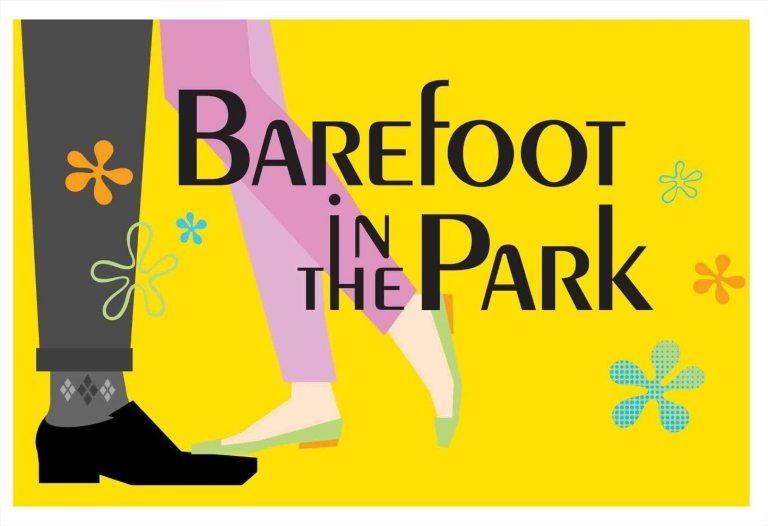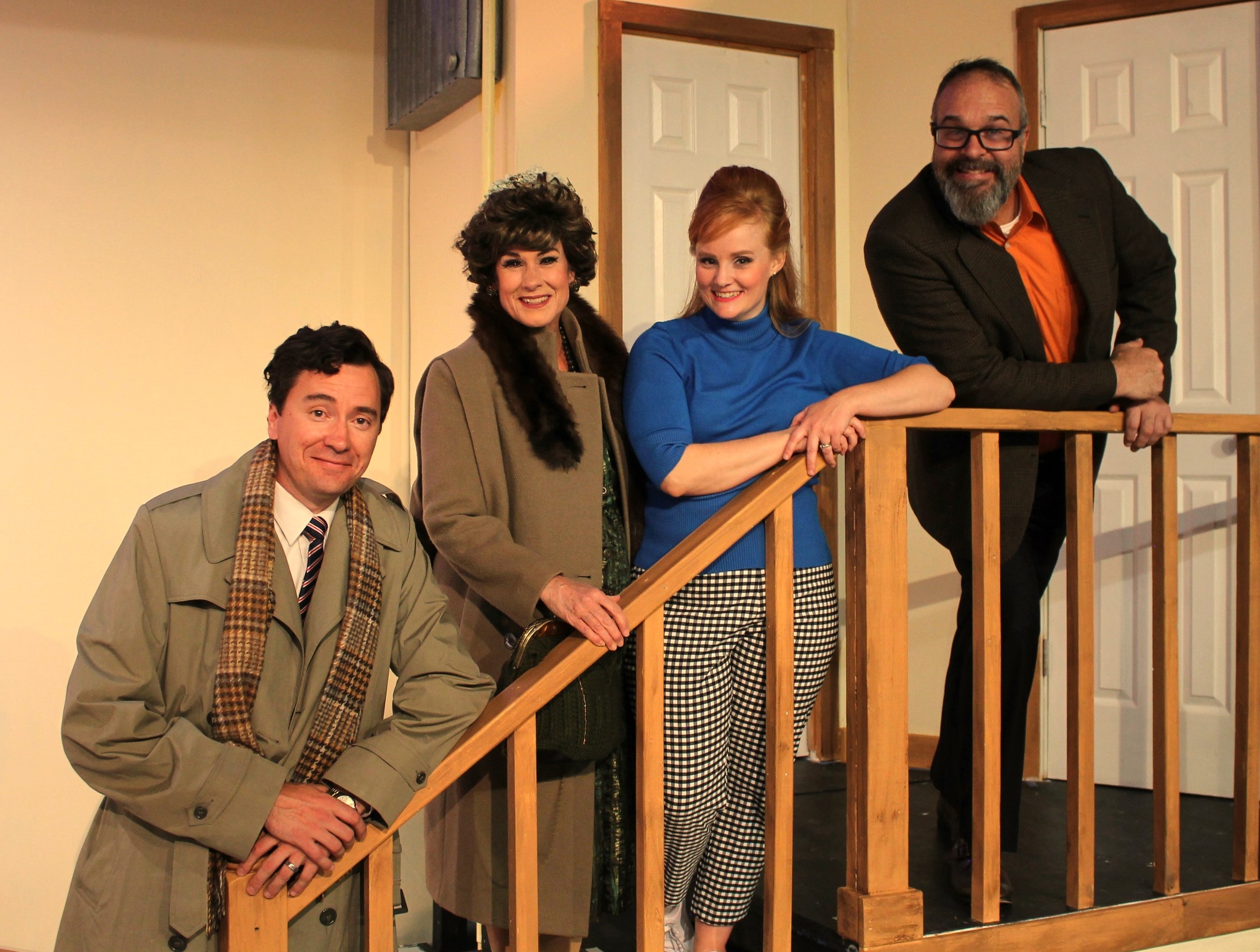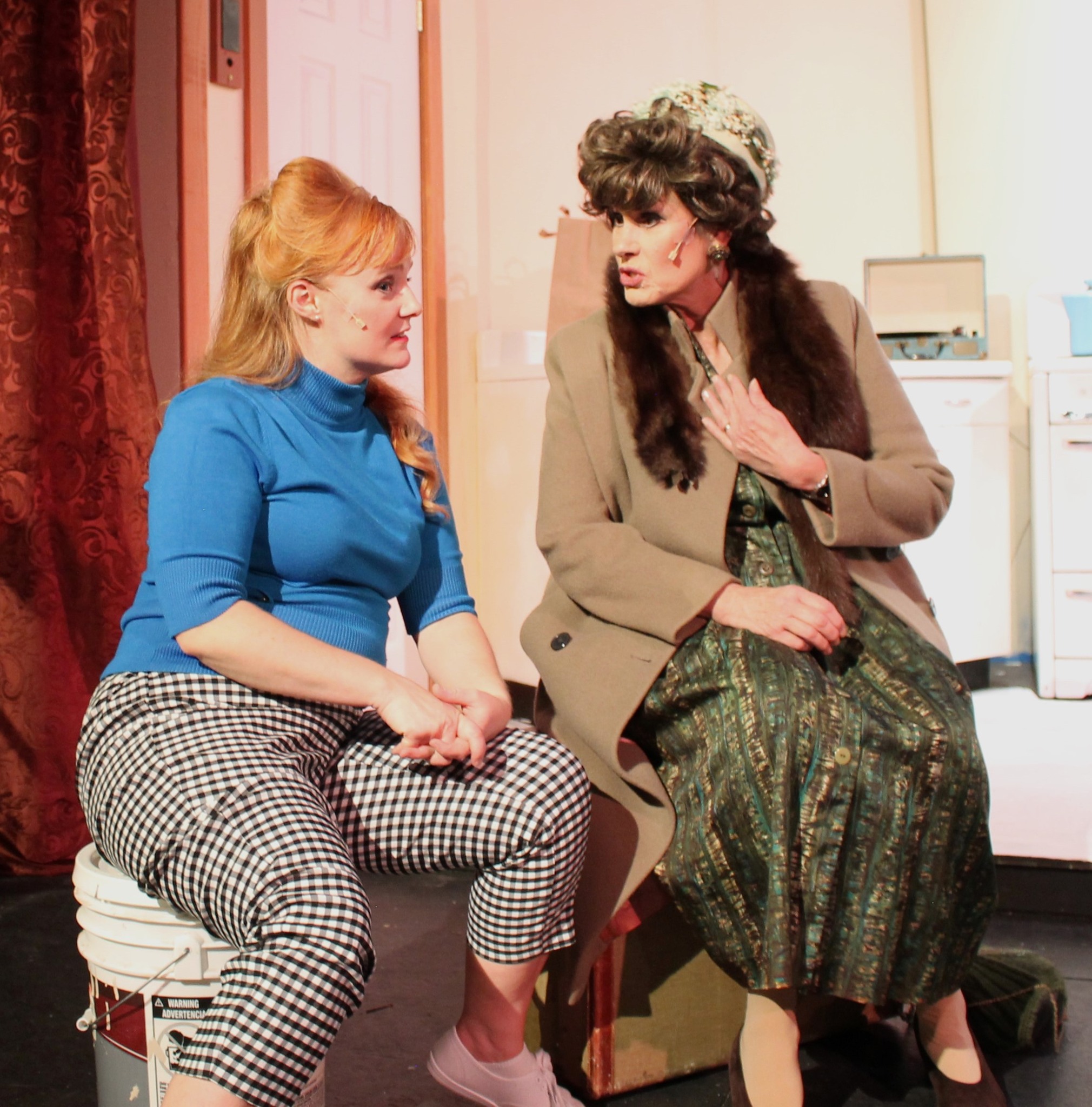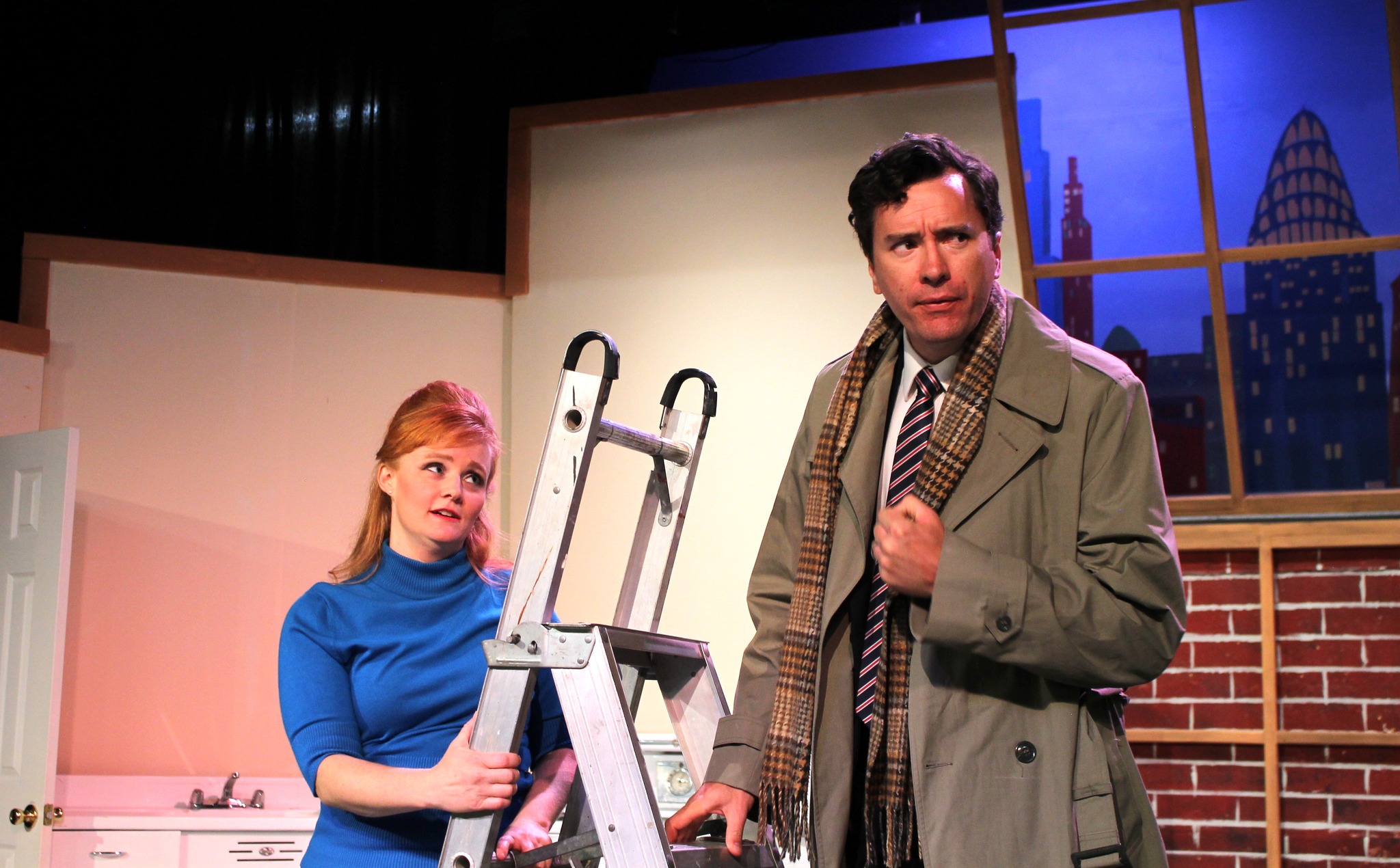HEBER CITY — Neil Simon is a titan of comedy in the American theatre. His works have garnered Tonys, Academy Award nominations, and a Pulitzer Prize for their insightful and relatable peeks into life in 20th century life. Barefoot in the Park, which I had the chance to see at the Timpanogos Valley Theatre on Monday, October 9, tells the story of a newlywed couple, Corie and Paul, living in an overpriced, run-down New York apartment and finding out that married life after the honeymoon is a more complex, but profoundly rewarding kind of love.

The play centers on the impulsive whims of new bride Corie Bratter, whose optimism led her to leasing an underwhelming apartment in New York with amenities including a steam heater that she cannot turn on, a miniscule bedroom that struggles to fit a twin bed, and a skylight that allows snow to fall freely into the home. Corie’s enthusiasm is not as infectious to others, and when a wild night on the town leads to a fight between Corie and her lawyer husband, Paul, she demands a divorce because Paul refuses to be as free spirited as she is, which she demonstrates by doing things like wandering barefoot in Central Park.
The Timpanogos Valley Theatre performs in the Heber City Social Hall, a charming space with a platform stage. I sat next to Kathy Carr, who had donated an authentic wood burning stove for the set of Corie and Paul’s apartment, and we admired the work a community had put into making such a convincing fifth floor apartment come to life on the stage. The set design by the team of Robyn Laine, Gary Harter, Julie Doud, and Jessica Wall was instantly recognizable for the woebegone flat of the play’s newlyweds. There was a large skylight window that led onto a balcony allowing for the action of two of the play’s characters to appear to climb precariously onto a high ledge at important moments in the play.

Julie Doud’s portrayal of Corie was fun to watch from the moment she stepped on stage. Doud dances and sings her way through the apartment before the main action begins. Doud was every part willing to follow Corie’s impulses and seemed to be having her thoughts and reactions in real time. Her chemistry with Nathan Smith’s Paul was strong out of the gate, but did not accelerate much beyond a few kisses in the opening scene. This was not due to Smith’s acting; he was a perfectly believable Paul who met Corie’s swells of enthusiasm with warm but practical humor in his own right. There is a scene where Paul and Corie have decided to get a divorce at 2 AM, and Paul pulls out a notebook to begin dividing assets, and their banter was humorous. The issue is that while both actors met their roles well, the scene, and many scenes in the play, felt like the stakes were fairly low — even when divorce after a week of marriage is one the table.
This hangup was again clear in the opening scene when Corie talks to a telephone repairman, who is out of breath from the many flights of stairs traveled. The bit about being out of breath played well, but the scene included few line pickups to keep the comedy fresh. The first scene of the play was over 40 minutes, and much of that was simply dead space between lines that director Robyn Laine could have tightened up. Still, the comedy through the show still had its moments. Corie’s mother, Ethel Banks (played by Beth Knight), was a delightfully sweet lady whose face often told the whole story. Ethel is put through the ringer with Corie. Whenever she praises her, Corie rejects the praise. Whenever she resists a plan, Corie insists. Knight was so good at matching what Doud brought to the table, that they felt like a true mother-daughter pairing with old chemistry.

Similarly, Ethel’s romantic interest, Victor Velasko (played by Matthew C. Kohl), was so committed to his own line of thinking. Kohl made Velasko more than a caricature and highlighted the character’s strengths — such as his devil-may-care demeanor — and well as his flaws. Velasko at one point makes such a lengthy pass at Corie that he asks, “Am I making you nervous?” Kohl played the character with frivolity, but the dialogue is so-off putting to see a much older man shamelessly pursuing an attractive newlywed who lives below him, that I was nervous watching the scene. It was not a Kohl issue, but what may have been a laugh in a previous time just did not land as well in the 21st century.
The story’s resolution shows the commitment and sacrifices that must come from the whim-driven Corie and the brief-bound Paul to make their relationship work. Part of the success of Barefoot in the Park is its message of the importance of support from odd places. It felt like just the right kind of show for the Timpanogos Valley Theatre as I watched so many community members chatting, embracing warmly, and truly enjoying one another’s company pre-show and during intermission. Barefoot in the Park is the kind of community theatre performance that seemed to emphasize in equal partnership the community and theatre, and it led to a great night seeing a decades loved classic play.
[box]The Timpanogos Valley Theatre production of Barefoot in the Park plays Mondays, Wednesdays, Fridays, and Saturdays at 7 PM at the Heber City Social Hall (90 North 100 West, Heber). Tickets are $8-14. For more information, visit timpvalleytheatre.com.[/box]
